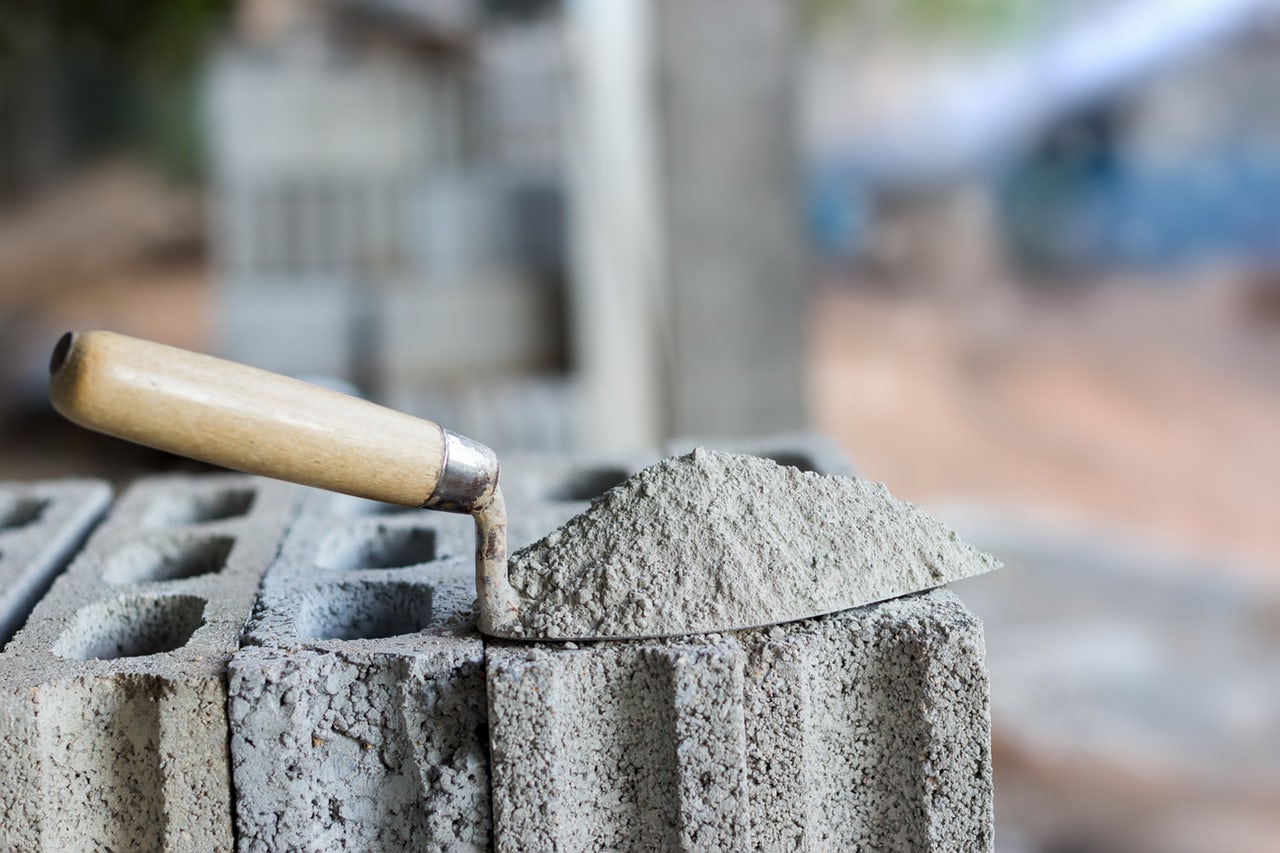The inquiry report of the Competition Commission of Pakistan (CCP) has confirmed cartelization by the All Pakistan Cement Manufacturers Association (APCMA) Lahore, revealing conclusive evidence of cartelization and collusive practices among the member units of the APCMA.
It has been learned that the Sindh High Court (SHC) has restrained the CCP from using the material collected during the raid conducted on two cement manufacturer’s premises (Lucky Cement and Cherat Cement) in any manner whatsoever as per court order.
The petition was filed seeking a stay order against the CCP’s action against APCMA Lahore and all other members units across the country. The SHC has granted the stay order in the case of two cement manufacturers located in the South Region. However, the court order has not restrained the CCP from completing action against 12 members of the APCMA covered under the jurisdiction of the North Region, including Lahore.
On Tuesday, the CCP held its meeting in which it was informed that the inquiry has been completed for North Region. In light of the court order, the CCP did not include material collected from raids conducted in the South Region. Therefore, the CCP finalized its inquiry against the units located in the North Region.
ALSO READ
Cement Sector Posts Lowest Monthly Growth in FY21
“We have valuable and hardcore evidence of cartelization against APCMA in Nothern Region. APCMA was operating as a front runner and taking collective decisions on various economic aspects. The CCP will shortly issue show-cause notices to the units located in North Region,” sources said.
“The CCP is not touching the South Region for investigation, but we rely on evidence in the North Region. However, we found the evidence of cartelization taking place in the South Region from the North Region,” they further added.
Evidence impounded from the North Region indicates that collusive activities are taking place in the South as well. However, the inquiry committee has not used any evidence impounded from the South Region due to the court’s decision.
The evidence of the cartelization among cement manufacturers is evident from the fact that they collectively decided that how much benefit of Federal Excise Duty (FED) reduction in cement prices would be passed on to the consumers, sources said.
According to the CCP, the Inquiry Committee recommends that the Commission may consider initiating proceedings under Section 30 of the Act against the APCMA and its 12 member undertakings.
From the information gathered, it was revealed that during the months June-July 2019, a sharp increase in cement prices was recorded in Islamabad (Rs. 63 per 50 kg bag), Lahore (Rs. 101 per 50 kg bag), and Karachi (Rs. 32 per 50 kg bag) translating into a hike of 11.4 percent, 18.6 percent, and 5.0 percent, respectively.
It was surprising to note that the increase in the price of cement came into effect at a time when global coal prices dropped due to excess supply and lower demand. Furthermore, oil prices reduced considerably in the international and domestic markets between April – May 2020 (Petrol and Diesel reduced by Rs. 15 and Rs. 27, respectively), and interest rates dropped to a single-digit figure as the State Bank of Pakistan slashed the interest rates by 525 bps from 13.25 percent to 8 percent during the FY 2019-20.
Based on the foregoing, the Commission on May 18, 2020, authorized an inquiry under Section 37(1) of the Act to ascertain whether there has been any prima facie violation of Section 3 and/or Section 4 of the Act on part of the cement manufacturers and submit a report in the matter.
ALSO READ
CCP Discovers Evidence of Cement Manufacturing Cartel in Karachi
The total production of cement in Pakistan during FY 2019-20 was 47.8 MMT (Local and Export). Whereas, the per capita consumption of cement in Pakistan is 175 kg, which is lowest when compared with other countries such as China with a per capita consumption of 1737 kg, India with 200 kg, Afghanistan with 200 kg, and Thailand with 440 kg.
The cement industry in Pakistan comprises a total of 19 companies of which 16 companies and 24 plants are operational and are divided into two regions, i.e., North and South. North region includes areas of Punjab, KPK, and AJK, consisting of 18 cement manufacturing plants. The installed capacity of the North region in FY 2019-20 is 76 percent of the total capacity of cement manufactures in Pakistan.
The highest concentration in the North region is due to the availability of raw material. South Region includes areas of Sindh and Balochistan, comprising six cement manufacturing plants having a share of 24 percent in the total capacity of the industry.
Analysis of the computer-stored data on smartphone device of the Marketing department Official of D.G Khan Cement, Mr. Shoaib Ahmed, highlighted the presence of a WhatsApp group named “APCMA Marketing Officials”, which was created on 15th November 2018 and was used as a medium to communicate and decide on the fixation of price in the North region.
Similarly, scrutiny and forensic analysis of the computer-stored information of the cement company and APCMA representatives in the South region revealed that the representatives of cement companies located in the South region exchanged information through WhatsApp and text messages, and emails regarding the fixation of cement price and its underlying cost factors, quota allocation, etc.
The collective price increase by the cement manufacturing companies is also evident from the data obtained by the Inquiry Committee from the Pakistan Bureau of Statistics (PBS), which shows the per bag cement price increase between 16th April 2020 and 29th July 2020.
The rising trend of the cement prices can also be verified from the data provided by the cement manufacturing companies to the Inquiry Committee, which shows an upward trend between April 2020 and August 2020, CCP said.
ALSO READ
CCP to Celebrate World Competition Day on 5th December
The companies in the North discuss and decide upon the cost components of cement, which include Freight, Axle load, Fuel Prices (petrol/diesel), and Taxes and duties (FED/GST). Regarding fixing of dispatch quota, CCP said that from the examination of the data, it is noted that irrespective of the percentage of actual utilization of each cement plant, the share of each plant remains equivalent to the installed capacity.
The same is also confirmed through the impounded data about plant wise dispatches and installed capacity for FY 2018-19 and FY 2019-20.
From the assessment of the impounded evidence, it is noted that quota allocation agreed is implemented daily, as prescribed by APCMA for manufacturers located in the North region. Dispatch quantities are discussed and agreed upon either through the WhatsApp group or in meetings, CCP said.
It may be noted here that the production capacity of the cement sector has increased from 44 million tons in 2014 to 69 million tons in 2020. The losses incurred by the cement sector and an increase in the price of cement in a similar period raise suspicion of a collective decision of the cement companies to recover losses incurred due to unutilized installed capacities.
It is pertinent to mention here that the cement sector has a history of collusive activities, and they have been penalized in the past to an amount of collectively more than Rs. 6.3 billion on account of involvement in prohibited agreements in violation of Section 04 of the Act. In 2012, the Commission again initiated an inquiry against cement companies. However, the same could not be proceeded further due to the stay order granted to cement companies by the Lahore High Court.
ALSO READ
CCP Will Now Get a Share of Fee from PTA, OGRA, SECP, PEMRA and NEPRA
Under Section 34 of the Act, the authorized officers of the Commission have access to any premises, place, accounts, documents, and computers, including computer-stored information, on the premise, and to impound or make extracts or copies of any document and account relating to any agreement made or decision taken, or to their implementation, by undertaking. In case an undertaking refuses, without reasonable cause, to allow the authorized officers of the Commission to exercise the aforesaid powers, the Commission can make a forcible entry.
The search has been carried out to gather evidence of possible communication, arrangement, agreement, or understanding between the cement producers about the violation of the provisions of the Competition Act, 2010.


























